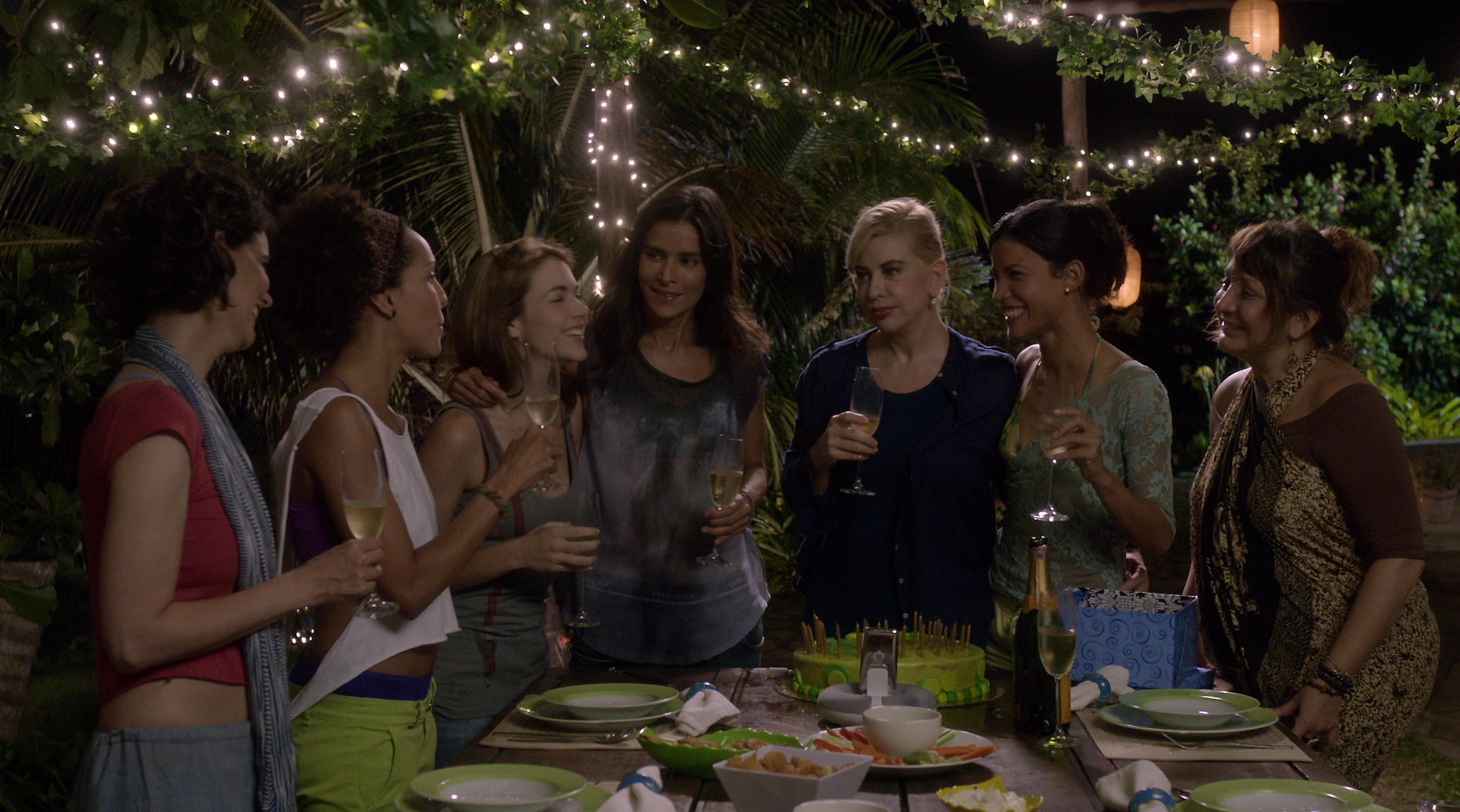 More often than not, films that have an illness at the center of them are far too heartbreaking to watch joyfully. After viewing these films, the audience leaves the theatre with a dark cloud over their heads; still lost in the somber tale as they move throughout the rest of their day. Fina Torres’ “Liz in September” does the opposite. Depicting a masterful story about love, life and friendship against a stunning Caribbean backdrop, watching “Liz in September” felt like floating in a daydream. The film follows 36-year-old Liz (Patricia Velásquez), a lesbian and former supermodel who is spending a final summer on the beach with her close girlfriends. Things don’t quite go as expected when Eva (Eloisa Maturé), an unexpected visitor shakes up all of Liz’s plans.
More often than not, films that have an illness at the center of them are far too heartbreaking to watch joyfully. After viewing these films, the audience leaves the theatre with a dark cloud over their heads; still lost in the somber tale as they move throughout the rest of their day. Fina Torres’ “Liz in September” does the opposite. Depicting a masterful story about love, life and friendship against a stunning Caribbean backdrop, watching “Liz in September” felt like floating in a daydream. The film follows 36-year-old Liz (Patricia Velásquez), a lesbian and former supermodel who is spending a final summer on the beach with her close girlfriends. Things don’t quite go as expected when Eva (Eloisa Maturé), an unexpected visitor shakes up all of Liz’s plans.
“Liz in September” is a vibrant film about living fully, loving deeply and being open to new experiences.
Director Fina Torres and producer Laura Oramas recently presented the film at the Aruba International Film Festival. The duo sat down with Shadow and Act to chat about the film and what drove them to tell the story.
Aramide Tinubu: Thanks so much for sitting down with me Ms. Torres. I just want to jump right in and ask “Liz in September” is based on the play, “Last Summer at Blue Fish Cove”, how did you find out about the play? Why were you inspired by the story?
Fina Torres: It’s a funny story because nine years ago, or maybe even more now when I was in LA, I was contacted by the producer who had the rights to make this movie in English; it was an American producer. However, it was very difficult to get the financing together. So many years later, I was in a Master Class with this Venezuelan actress, and she was doing a scene from the play. I thought to myself, I know this play; I was going to make this movie many years ago. The actress told me, “you need to do it now.” So I called the producer and asked if she would be interested in doing the movie but in Venezuela so it would be an adaptation. And she told me, OK let’s do it.
AT: In the film, Liz has a great deal of tension with her parents. They kicked her out at 16 years old because of her sexuality, and the relationship was never repaired. Have there been any strides at all in the LBGTQ community in Venezuela?
FT: That’s a very difficult question to answer because in a way yes, like in the rest of Western world; but in some ways not. Gay men seem to be more accepted then gay women.
AT: Really?! That’s so interesting, I would have assumed the opposite.
FT: Yes, and I think that some countries in Latin America like Argentina, Nicaragua, Chile and I think Columbia now have gay marriage, but not in Venezuela. The gay community has really tried, but the Congress there is extremely homophobic.
AT: Yes, that’s how some states are back in the US. It’s horrible.
FT: Yes, and even the more progressive political parities in Venezuela don’t dare to fight for gay equality because they fear they will lose a lot of voters.
AT: Well, Patricia Velásquez who plays Liz in the film is the first openly gay Latina supermodel. How did Patricia’s life inspire Liz’s back-story?
FT: Liz’s supermodel background wasn’t in the play, but I thought it was important to incorporate some aspects of Patricia’s life. In the play, Liz is kind of butch but I didn’t want to make her a stereotype. So, I put some elements of Patricia’s life in there. She traveled the world as a high fashion model, and she’d known the power of beauty and how to use it to her advantage. So, I thought it would be interesting to take that and put in into the screenplay. It was such a melding between Liz and Patricia Velásquez.
AT: I found it so striking that Lola couldn’t fulfill Liz’s wishes in the end.
FT: Some doctors, they cannot do that because they take that oath not to do any harm. They want to keep people alive, so it’s a very ethical choice. On the other hand, Eva had a son who was ill and that she forced him to fight it so much that he wasted away. So she didn’t want to do that again. So, that’s one of the reasons she’s able to help Eva.
AT: What is Margot’s back-story with the woman that appears suddenly, or was that simply a figment of Margot’s imagination?
FT: Well, that’s what I wanted people to ask themselves. I wanted to leave it up to the audience. The way I see it is that Margot dreamt about Yolanda because she has been faithful to this love all of her life, and she has always been waiting for this woman to come back. Margot has this nostalgia for this incredible love that she had so, for me it was like a dream or a desire.
Continue reading at Shadow and Act.
Image: Liz In September

